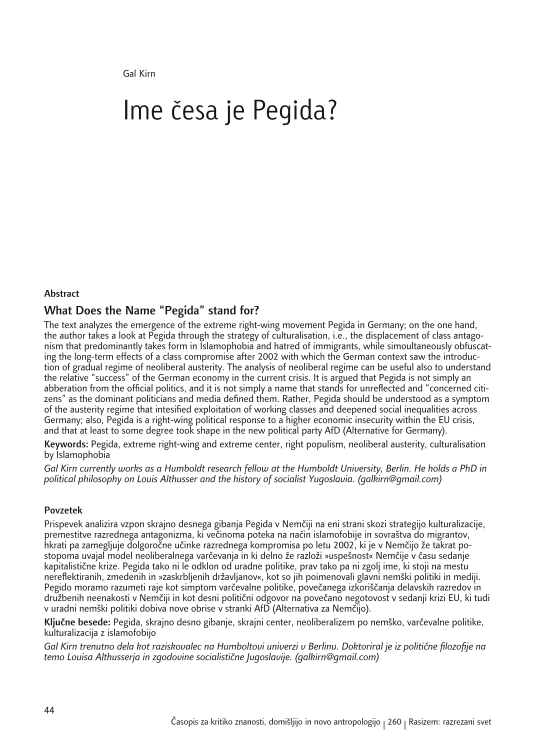The text analyzes the emergence of the extreme right-wing movement Pegida in Germany; on the one hand, the author takes a look at Pegida through the strategy of culturalisation, i.e., the displacement of class antagonism that predominantly takes form in Islamophobia and hatred of immigrants, while simoultaneously obfuscating the long-term effects of a class compromise after 2002 with which the German context saw the introduction of gradual regime of neoliberal austerity. The analysis of neoliberal regime can be useful also to understand the relative “success” of the German economy in the current crisis. It is argued that Pegida is not simply an abberation from the official politics, and it is not simply a name that stands for unreflected and “concerned citizens” as the dominant politicians and media defined them. Rather, Pegida should be understood as a symptom of the austerity regime that intesified exploitation of working classes and deepened social inequalities across Germany; also, Pegida is a right-wing political response to a higher economic insecurity within the EU crisis, and that at least to some degree took shape in the new political party AfD (Alternative for Germany).




